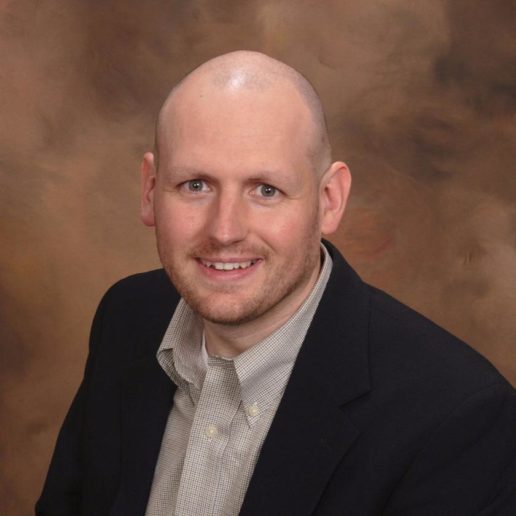
We live in a strange world and sometimes you think you’ve heard everything. Well, here’s a new one. A judge, Jennifer Nofsinger of Maine’s District Court, ruled in December of 2024 that a custodial parent, Emily Bickford, could no longer take her then eleven-year-old daughter to Calvary Chapel church services (because the district court considered them to be a cult, and believed it was psychologically damaging to the child)!
Emily Bickford and the girl’s father, Matthew Bradeen, were never married (their relationship ended before the child was born) but they share joint custody of their child. Emily is a devout Christian who faithfully attends Calvary Chapel Greater Portland in Maine. The Calvary Chapel Association (CCA) has over 1,800 affiliated locations in the United States. The Calvary Chapel movement was founded in California in 1965 by Pastor Chuck Smith (featured in the 2023 film, Jesus Revolution).
Calvary Chapels hold to a middle-of-the-road Evangelical statement of faith. Bradeen (the girl’s father), despite this, hired an “expert witness” (Dr. Jana Lalich) to testify to the effect that Calvary Chapel was “a cultic organization” and has dangerous teachings that were going to be harmful to his daughter.
The “Cultic” Teachings?
What were some of those dangerous teachings? According to an Appellant Brief filed by Liberty Counsel (the legal organization helping to represent the mother, Emily Bickford), concerns about the church include:
- “The Church describes its worship services as ‘teach[ing] the Bible verse by verse, chapter by chapter.’” (App. 027)
- “The district court noted that the Church studies the Old Testament…” (App. 028)
- “The district court also noted that Calvary Chapel’s pastor testified that he preached about Hell…” (Id.)
- The district court found that Calvary Chapel teaches that people can only be saved by meeting [G]od on [G]od’s terms.” (Id.)
- “The district court made a factual finding that Calvary Chapel teaches, according to the Bible, that there will be a second coming of Christ…”(Id.)
- “The district court found that these messages are reinforced through Calvary Chapel’s curriculum for children…” (Id.)
As an aside, Liberty Counsel commented that the judge showed disrespect to God by using only lowercase when referring to Him:
“Finally, and most offensively to the First Amendment, the district court went further and demonstrated hostility towards Bickford’s religious beliefs in God by universally referring to Bickford’s God as ‘god,’ including in a block quote of a religious prayer in which Calvary Chapel’s pastor was no doubt referring to the God of the Bible. (App. 033-035.) One struggles to believe this was unintentional or simply a stylistic choice.”
Apparently, the frequency of attendance was also disturbing to the court:
“The district court noted that Bickford takes Minor Child to religious worship services on Sunday, and a weekly religious service on either Friday or Wednesday, depending on the week.” (App. 029)
What fellow congregants shared at church meetings was also a problem:
“The district court noted that at some of these religious worship services individuals have given testimony of their religious experiences and exercise. The district court noted that some of Calvary Chapel’s testimonies have included married couples sharing their story of how they were ‘saved’ and from what they were saved.” (Id.)
There were also false caricatures of Christian positions on morality described, of course, as “hateful rhetoric”:
“The district court made a factual finding, based on the so-called cult expert’s testimony, that the sermons at Calvary Chapel are filled with ‘hateful rhetoric” – homophobia, disdain of science, and hatred of public schools.” (Id.)
Even the pastor’s preaching style and his belief in absolute truth were deciding factors:
“As to the district court’s own interpretation of Calvary Chapel, it found that Calvary Chapel’s pastor presented as ‘charismatic,’ that ‘he spoke fast, passionately, at length, and authoritatively,’ and that he ‘had answers for all the questions posed to him and answered those questions in manner that suggested that there could be no other truth than the message he was delivering.’”
If you are thinking, “It sounds like these accusations could be equally leveled against MY church!” you are correct. This is mainstream, Evangelical Christian belief and practice.
The Court Intervenes and Bans Church Attendance for a Child
According to Liberty Counsel:
- “According to the district court, these articulated attributes of Calvary Chapel’s pastor contributed to its finding that Calvary Chapel was a cult. (Id.) The district court found that Bickford’s Minor Child was psychologically harmed from attending religious worship services at Calvary Chapel.”
- “Lalich testified, and the district court accepted as fact, that the potential that Minor Child will be harmed by the messages she is receiving (e., religious sermons that come from the Bible) is ‘evident.’” (Id.)
Mother Denied Right to Make Medical Decisions
The judge also ruled that Emily Bickford’s religious beliefs hindered her ability (as a mother) to act in her child’s best interests:
“[T]he court finds that [Bickford’s] beliefs about Calvary Chapel’s teachings have eclipsed her ability to make decisions that are in [Minor Child’s] best interests.” (App. 032.)
The court also accused the mother’s religious beliefs of hindering her from being able to make future medical decisions for her daughter:
“The district court explicitly noted that Bickford’s religious beliefs suggest she is “unlikely” to seek mental health counseling or other medical treatment.” (App. 032-033.) “It further noted that Bickford’s medical decision-making was based on her ‘emotions,’ because she did not desire for Minor Child to receive the Covid vaccine.” (App. 037.)
It should be noted that there is nothing in Calvary Chapel’s theology, nor in Emily’s belief system or previous practice, which prohibits the pursuit of proper medical treatment for her daughter when it is necessary. This was clearly political posturing from the judge based on her view in the efficacy of the COVID vaccine for children.
In May 2025, the Health and Human Services Secretary removed for COVID-19 vaccine from the standard immunization schedule for healthy children and pregnant women, stating that the known risks do not outweigh the purported benefits for this specific group. The National Institutes of Health Director, Dr. Jay Bhattacharya, participated in this announcement, stating that “There’s no evidence healthy kids need it today and most countries have stopped recommending it for children” [i]
The court decided:
“Mr. Bradeen is awarded the right to make final decisions regarding [Minor Child’s] participation in other churches and religious organizations in the event of a dispute between the parties.” (App. 042)
Liberty Counsel added:
“The district court granted final decision-making authority over Minor Child’s medical care to Bradeen.” (Id.)
Was the Judge’s Rule Constitutional?
If you are thinking the judge’s decision was a Constitutional overreach, you would be dead right!
Look at what America’s courts have said regarding this kind of posturing by the court in depriving an American citizen of religious freedom:
- “Religious beliefs need not be acceptable, logical, consistent, or comprehensible to others in order to merit First Amendment protection.” —Thomas v. Rev. Bd. of Ind. Emp. Sec. Div., 450 U.S. 707, 714 (1981).
- “The Fathers of the Constitution were not unaware of the varied and extreme views of religious sects, of the violence of disagreement among them, and of the lack of any one religious creed on which all men would agree. They fashioned a charter of government which envisaged the widest possible toleration of conflicting views. Man’s relation to his God was made no concern of the state. He was granted the right to worship as he pleased and to answer to no man for the verity of his religious views.” — United States v. Ballard, 322 U.S. 78, 86-87 (1944).
- “This case, of course, is not one in which any harm to the physical or mental health of the child . . . has been demonstrated or may be properly inferred. The record is to the contrary, and any reliance on that theory would find no support in the evidence.” – Wisconsin v. Yoder, 406 U.S. at 230.
- “Meyer’s repeatedly recognized right of upbringing would be a sham if it failed to encompass the right to be free [from] a judge [who] believed he “could make a ‘better’ decision” than the objecting parent had done. The strength of a parent’s interest in controlling a child’s associates is as obvious as the influence of personal associations on the development of the child’s social and moral character. Whether for good or for ill, adults not only influence but may indoctrinate children, and a choice about a child’s social companions is not essentially different from the designation of the adults who will influence the child in school. Even a State’s considered judgment about the preferable political and religious character of schoolteachers is not entitled to prevail over a parent’s choice.” — Troxel v. Granville, 530 U.S. 57, 78-79 (2000) (Souter, J., concurring).
- “If there is any fixed star in our constitutional constellation, it is that no official, high or petty, can prescribe what shall be orthodox in politics, nationalism, religion, or other matters of opinion or force citizens to confess by word or act their faith therein.” — West Va. State Bd. of Educ. v. Barnette, 319 U.S. 624, 642 (1943).
- “One parent may be a Republican the other a Democrat, one may be a Capitalist the other a Communist, or one may be a Christian and the other a Jew. Parents in healthy marriages may disagree about important matters; and, despite serious, even irreconcilable, differences on important matters, the government could certainly not step in, choose sides, and impose an orthodox uniformity in such matters to protect judicially or bureaucratically determined ‘best interests’ of the children of such parents.” — Zummo v. Zummo, 574 A.2d 1139-40 (1990).
- “[t]he rights of children to exercise their religion, and of parents to give them religious training and to encourage them in the practice of religious belief, as against preponderant sentiment and assertion of state power voicing it, have had recognition here.” — Prince, 321 U.S. at 165 (emphasis added).
Regarding the mother’s right to make medical decisions for her child:
- “Simply because the decision of a parent is not agreeable to a child or because it involves risks does not automatically transfer the power to make that decision from the parents to some agency or officer of the state.” — Parham v. J.R., 442 U.S. 584, 603-04 (1079).
- “[P]arents have authority to select medical procedures and otherwise decide what is best for their child, and ‘[n]either state officials nor federal courts are equipped to review such parental decisions.’” — Parham, 442 U.S. at 603-04.
A Violation of the 14th Amendment as well as the 1st Amendment
Liberty Counsel noted that the courts violated the mother’s 14th Amendment due process rights as well:
- “The interest of parents in the care, custody, and control of their children ‘is perhaps the oldest of the fundamental liberty interests recognized by this Court.’ — Troxel, 530 U.S. at 65 (emphasis added).
- ‘The history and culture of Western civilization reflect a strong tradition of parental concern for the nurture and upbringing of their children.’ — Yoder, 406 U.S. at 232.
- In fact, “it cannot now be doubted that the Due Process Clause of the Fourteenth Amendment protects the fundamental right of parents to make decisions concerning the care, custody, and control of their children.” — Troxel, 530 U.S. at 66.
In Summary, the U.S. Supreme Court Had Previously Ruled:
“We are a religious people whose institutions presuppose a Supreme Being. We guarantee the freedom to worship as one chooses. We make room for as wide a variety of beliefs and creeds as the spiritual needs of man deem necessary. We sponsor an attitude on the part of government that shows no partiality to any one group and that lets each flourish according to the zeal of its adherents and the appeal of its dogma. When the state encourages religious instruction or cooperates with religious authorities by adjusting the schedule of public events to sectarian needs, it follows the best of our traditions. For it then respects the religious nature of our people and accommodates the public service to their spiritual needs. To hold that it may not, would be to find in the Constitution a requirement that the government show a callous indifference to religious groups. . . . But we find no constitutional requirement which makes it necessary for government to be hostile to religion and to throw its weight against efforts to widen the effective scope of religious influence. The government . . . may not thrust any sect on any person.” — Zorach, 343 U.S. at 313-14.
This is one of the most frightful and egregious oversteps of judicial authority against religious and parental rights we have seen to date. It will surely be overturned if there is any shred of justice left in this land, but it should also serve as a reminder of how important elections are in the appointment of judges who can either uphold or wreck justice and influence our nation for generations to come.
[i] https://www.nytimes.com/2025/05/27/health/covid-vaccines-children-pregnant-women-rfk-jr.html





















